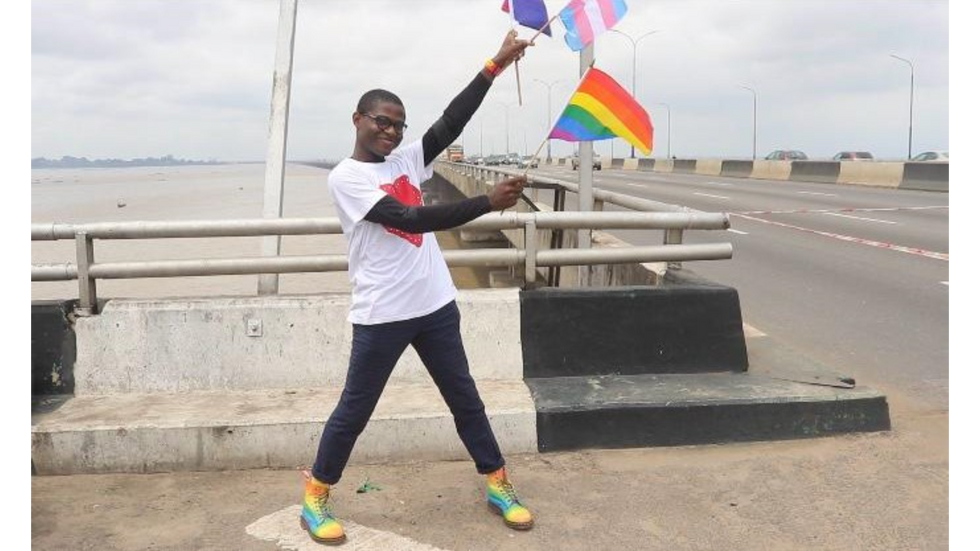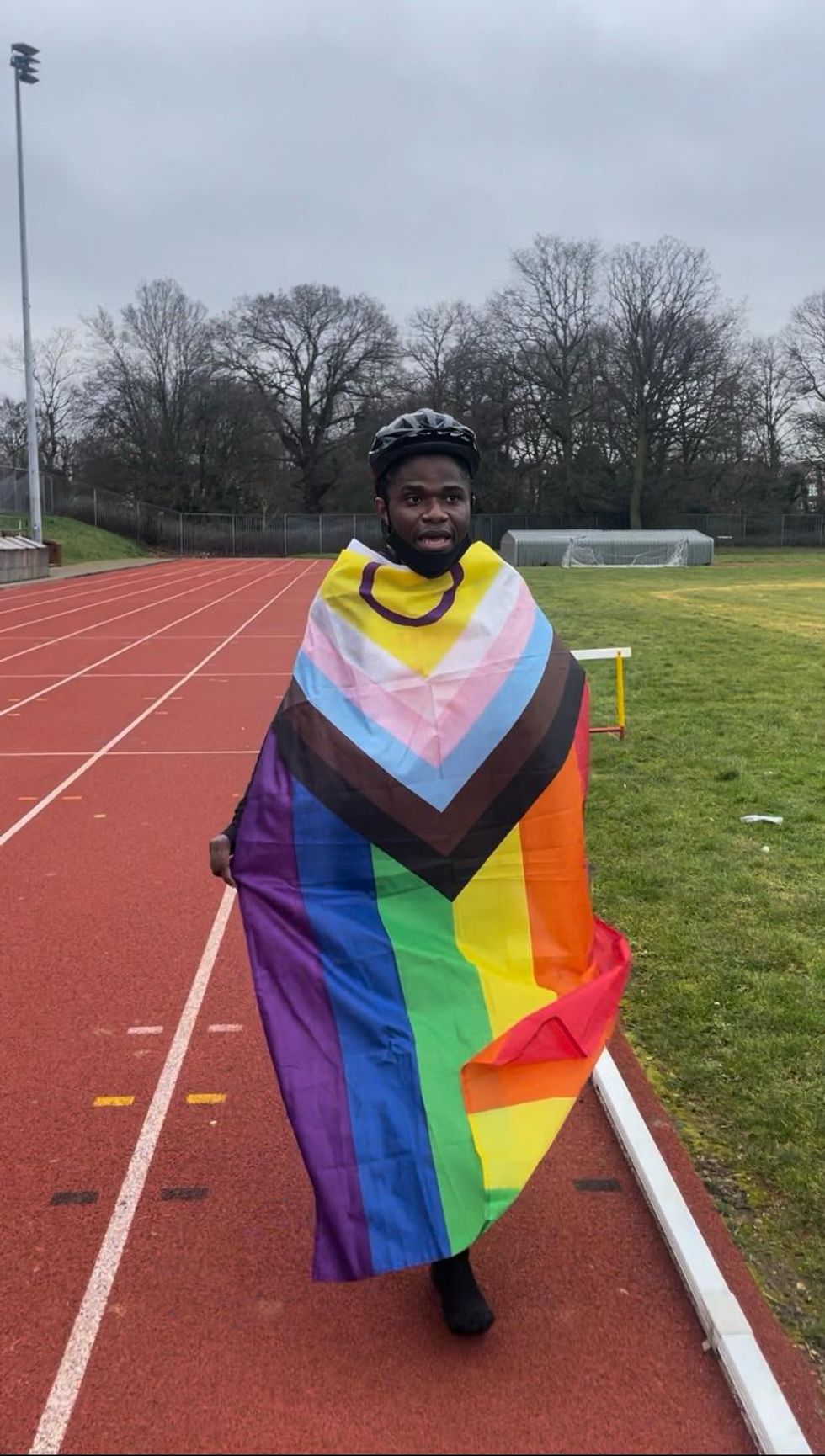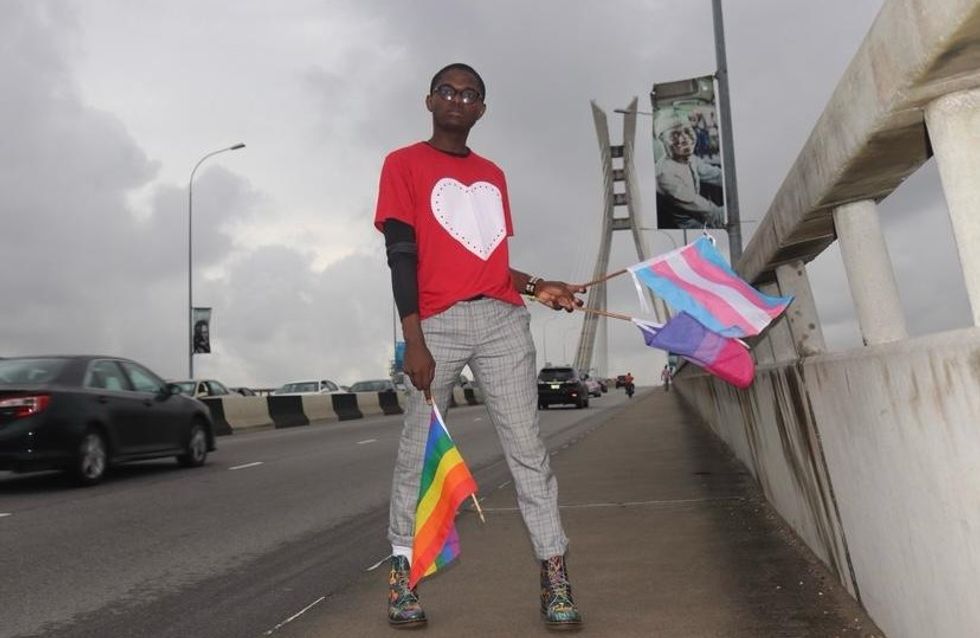Aisling Grace
Feb 09, 2024

Joel Mordi hopes to set a world record by walking 15,000km backwards to raise awareness of the homophobia faced by people around the world (Joel Mordi/PA)
An LGBT+ refugee based in London who organised Nigeria’s first Pride march hopes to set a world record by walking 15,000km backwards to raise awareness of the homophobia faced by people around the world.
Joel Mordi, 26, told the PA news agency he will be undertaking the challenge over the next year in different locations across the UK and will hold a flag of a different country during each walk so “every country flag will be represented”.
His challenge, known as retro-walking, is “very metaphorical” as he aims to highlight “backwards” opinions held against LGBT+ people, he said.

Mr Mordi grew up in Nigeria as an LGBT+ person and said “that meant I had to confront various forms of covert and overt injustices – bullying, heckling, and all sorts – just for being perceived to be different”.
Upon arriving in the UK, he experienced homophobic abuse at a detention centre and in provisional accommodation and even experienced sexual abuse by another asylum seeker, he said.
He said his backwards walking challenge “depicts the state of the nation and it aims to challenge backward, long-standing and recent harmful laws, policies and rhetoric that surround not only my social group of LGBT+ people but also what our social discourse is”.
Mr Mordi kicked off his world record attempt in February with a 12-hour backwards walk around Tooting Bec Stadium.
To achieve his goal, he must beat the record which was set more than 90 years ago by Plennie Lawrence Wingo, who walked backwards for 18 months from 1932 to 1933.
While he lived in Nigeria, Mr Mordi was an LGBT+ rights campaigner who organised a series of protests in 15 locations and entered the National Assembly in the capital Abuja with a contingent of allies to read a “love letter” to Nigerian youth.
He said: “It was a call to action to all the youth everywhere to stand up for justice.”

Mr Mordi established his own foundation, the Mordi Ibe Foundation, a youth-focused charity based in Nigeria “localising the United Nations Sustainable Development Goals and making it actionable for young people in schools”, he explained.
However, he and his allies “became people of interest” and he fled to the UK to seek safety in 2019, where he was “hit by a rather harsh reality that England is not a utopia”, he said.
Mr Mordi was placed in Harmondsworth immigration removal centre in Middlesex for five days, where he experienced “whistling, cat-calling” and name-calling during his induction “in front of the guard”.
He said: “Everyone kept saying you’ll be OK even though they knew I was different.
“They saw my flag, they saw my Dr Martens rainbow collection boots, they saw everything that was a dead giveaway to say I’m a person of a certain need.”
He also experienced sexual assault by another asylum seeker while at the detention centre, he said.
“Someone walked into my room twice and he had his way. If he wanted to kill me, he would have killed me,” he said.
He said he reported the incident to an officer but no action was taken.
During the Covid-19 pandemic, he lived in provisional accommodation with a homophobic roommate who “kept on threatening” him due to his sexuality so he frequently sofa surfed at friends’ accommodation, he said.
“Right now I’m classed as homeless for my many different postcodes,” he said.
“I carry so much pain, so much anger as I do love, and that’s why I’m walking backwards, to challenge long-standing hateful, harmful rhetoric and all the pain we have to go through.”
A Home Office spokesperson told PA: “It is vital that detention and removal are carried out with dignity and respect.
“We take the welfare and safety of people in our care very seriously and accept nothing but the highest standards from service providers that manage the detention estate and the escorting process.”
Top 100
The Conversation (0)













